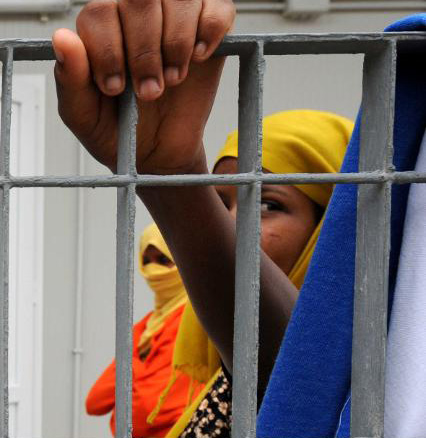Ahead of the European Council of 15 October, the Commission has today put on the table a Communication describing the State of Play of the implementation of the priority actions under the European Agenda on Migration. This Communication to the European Council sets out the progress made on the operational measures, budgetary commitments and actions to implement EU law that were proposed by the Commission and endorsed by Heads of State and Government on 23 September.
European Commission President Jean-Claude Juncker said: “As Europe’s leaders, we came together three weeks ago to agree on a concrete list of steps we need to take, and to take urgently. The Commission has lived up to all its commitments. We have dedicated more money to the refugee crisis – with our amending budget already adopted by both co-legislators. We have sent our experts to Greece and Italy to make the hotspots and relocation scheme function, and pushed all Member States to properly apply the EU’s common asylum rules. We have seen concrete results, but we still need Member States to do more. Noble words need to be followed by concrete actions back home.”
Concerning operational measures, the hotspot approach proposed by the Commission is now starting to function, with Migration Management Support Teams fully operational in Lampedusa, Italy, and being rolled out in Greece. This has allowed for the first relocations of asylum seekers to take place, as well as a number of return flights for irregular migrants with no right to stay. The Commission has also worked with Member States to operationally prepare for resettlement of people in need of international protection directly from third countries, and the first Syrian refugees have already been resettled to Italy, the Czech Republic and Liechtenstein – which, as a Schengen Associated State, participates in the scheme. To allow these schemes to function effectively, Member States must swiftly respond to the call for national experts to support the work in the hotspots, notify the Commission of their reception capacities, and identify the national contact points who will coordinate relocations with Greece and Italy as well as national resettlement efforts.
In terms of budgetary support, the Commission has already proposed amendments to its 2015 and 2016 budgets, boosting the resources devoted to the refugee crisis by €1.7 billion. This means that the Commission will spend €9.2 billion in total on the refugee crisis in 2015 and 2016. In an accelerated procedure, both the European Parliament and Member States in the Council have given their approval to the Commission’s amended budget for 2015. Member States must now deploy national spending to match, as recognised by Heads of State and Government on 23 September. A large number of Member States still need to match EU funding for the UNHCR, World Food Programme and other relevant organisations (€500 million), the EU Regional Trust Fund for Syria (€500 million) and the Emergency Trust Fund for Africa (€1.8 billion).
Member States must also ensure proper implementation of EU law. The Common European Asylum System is based on helping people in need of international protection and returning migrants who have no right to stay on EU territory. These rules have to be properly applied. The Commission has not yet received replies to the 40 warning letters it sent to Member States in September, in addition to the 34 already pending cases, on potential or actual infringements of EU asylum legislation on 23 September.
The Commission is also working intensely with Greece, with a dedicated team working under the leadership of the Commission’s Director-General of the Structural Reform Support Service on the ground to ensure that Greece’s reception capacities are improved, and that conditions will be met for the reinstatement of Dublin transfers to Greece to be recommended by the European Council by the end of 2015. In addition, the Commission is currently finalising an Opinion on the proportionality and necessity of temporary reintroduction of border controls by Germany, Austria and Slovenia. The Commission will continue to closely monitor the situation, and believes that full implementation of the agreed priority actions will allow a return to a normally functioning Schengen system in the months to come.
The external dimension is key to tackling the root causes of current migratory and refugee flows to the EU. Additional financing and diplomatic efforts are one part of the solution. EU diplomacy is actively engaged in seeking political solutions to the crises in Libya and in Syria, in support of UN led processes. In addition, the EU Action Plan against Migrant Smuggling is being implemented, and preparations are ongoing with African partners to prepare for successful conclusions to the Valletta Summit on Migration which will take place on 11-12 November. More effective returns are being facilitated by negotiations on readmission agreements or the increased implementation of existing agreements, such as the one with Pakistan. Turkey and the Western Balkans are pivotal partners. The detailed Action Plan on Migration handed by President Juncker to President Erdoğan on 5 October set out a series of concrete measures to work on together. The Commission is now in active discussions with the Turkish authorities in order to finalise the Action Plan. In addition, the recently adopted Declaration at the High-level Conference on the Eastern Mediterranean – Western Balkans Route paves the way for increased cooperation with partners in our immediate neighbourhood.




